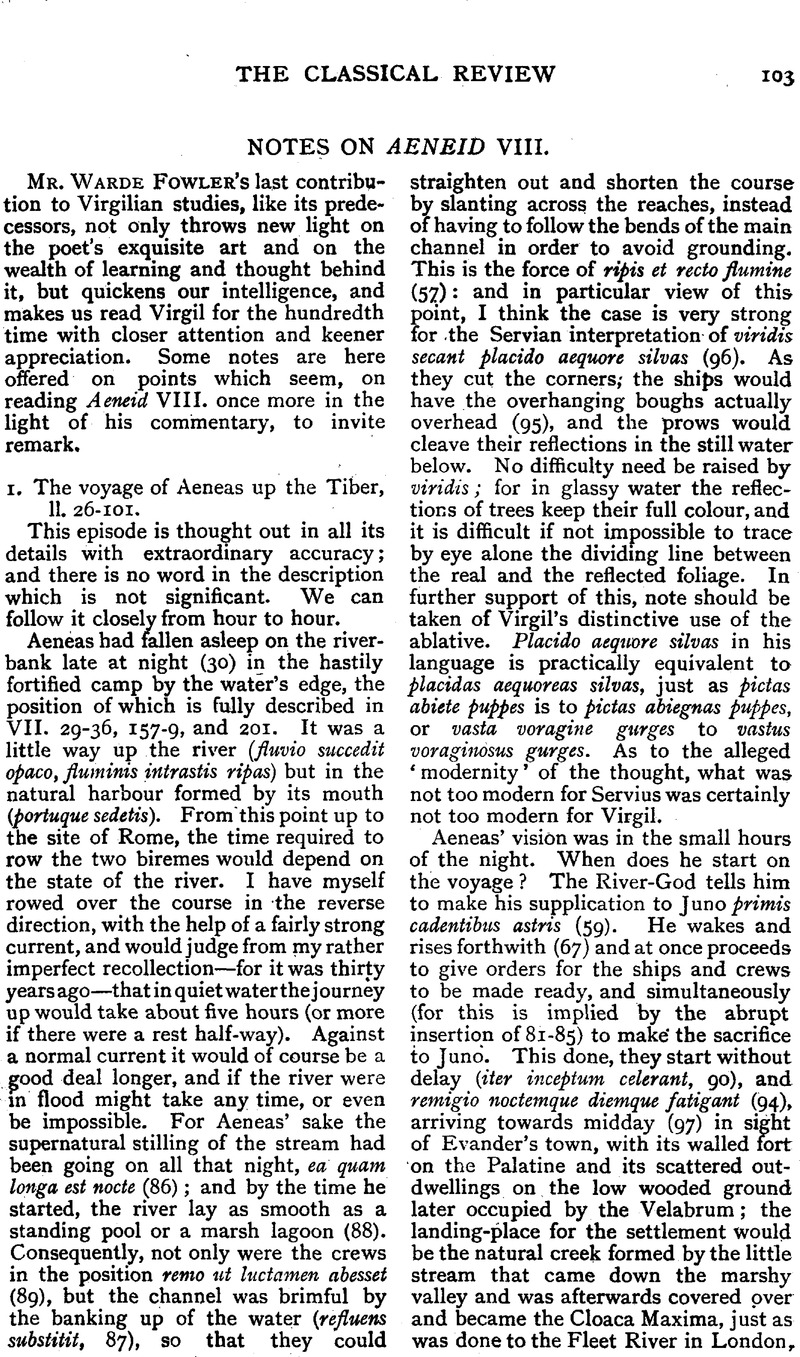No CrossRef data available.
Article contents
Abstract

Information
- Type
- Original Contributions
- Information
- Copyright
- Copyright © The Classical Association 1918
References
1 Had attention been paid to this Virgilian meaning of surgere, we should have been spared the criticism of the famous pritmo qui surgere mense Aut videt aut vidisse putat per nubile lunam, that it represents the new moon as rising. Virgil, even if his astronomy be not, like Milton's, impeccable, was a keen and accurate observer of Nature; and here not only the truth, but the beauty and imaginative value of the simile lie in the picture of the pale crescent ‘emerging,’ becoming visible though yet faintly and uncertainly, in the lingering daylight through a gap in the cloud-drift. So likewise the beautiful tibi deserit Hesperus Oetam of Ecl. VIII. 30 has been made into nonsense by translators (‘Hesper from Oeta's summit for thee sails into the night’ is Lord Bowen's rendering), though Keightley long ago had indicated the true sense in a brief note—‘deserit, leaves, i.e., sinks behind it after the sun.’ Lovers of English poetry will remember Wordsworth's When down behind the cottage roof At once the bright moon dropped, and his sonnet beginning, I watch and long have watched with calm regret. I am not here concerned to explain or defend Horace's nec vespero surgente nec fugiente Solem; but the whole matter is lucidly put in Heyne's excellent note on Ecl. viii. 30.

